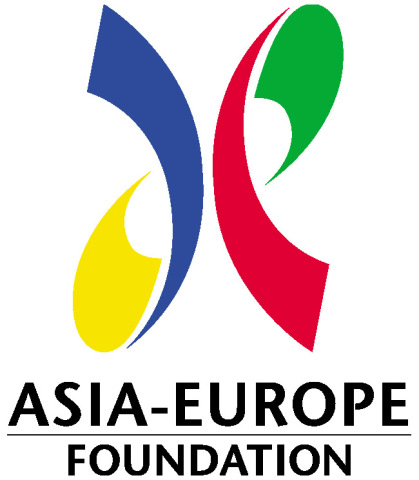
Connecting Civil Societies in Asia & Europe: An Informal Consultation
Local cultural development, contemporary artistic forms, international exchange
How to go towards more concrete cooperation between Asian and European independent art and cultural centres?
Working Group on Independent Art and Cultural Centres
Connecting Civil Societies
Barcelona, Spain
Time: 16-18 June, 2004
Emergence and current development of independent art and cultural centres in Asia and Europe. To what extent are these centres, based on artists and citizens’ initiatives, adapted to new creative forms and contemporary requirements?
Which format could help for the cooperation and exchange between artists’ run spaces from Asia and Europe: networking, pilot projects, professional exchange?
Concept
Over the past twenty years, in Europe and more recently in Asia, independent art and cultural centres have been emerging from artistic projects stemming from citizen initiatives. There are more than 300 artists’ run spaces in Europe and the number is increasing in Asia. Their format can be different (former renovated factories, cafes, studios) and their sources of funding too.
Some contacts among Asian and European artists’ run spaces have already taken place, but most of the artists, art managers and curators mention the lack of follow-ups and the absence of concrete and sustainable exchange, particularly between the other regions. More opportunities for contemporary artistic projects, writings and discussions need to be developed between Asia and Europe.
Parallel to the Asia-Europe dialogue on a cultural policy makers’ level, one has to recognise the importance of international cultural exchange on the artists’ level.
Most of artists’ initiatives are based on people who want to find new answers to the current development of contemporary artistic life. These new forms of expressions–even if expressed first in particular territories-have no boundaries and seek contacts and better understanding with the other region.
One can find similarities between artists and cultural policy makers’ situations: needs for sustainable activities (to increase multiplying effect of artists’ exchange) and for more constant and up-dated information on the development of contemporary art in Asia and Europe; necessity of training and skills improvement in the field of art management; recognition of critical writing in the fields of art works and artists’ exchange.
Artists’ initiatives and long term projects are limited due the decrease of financial resources earmarked for transnational networks and international cultural events.
The above factors constitute the raison d’être of gathering independent art centers’ representatives in the working group, chaired by the Cultural Exchange Sector of the Asia-Europe Foundation, during the Informal Consultation on Connecting Civil Society of Asia and Europe (Barcelona, 18 June 2004).
ASEF, Casa Asia, JCIA and IIAS initiated this brainstorming session in Barcelona, which aims at articulating relevant suggestions for stronger cooperation between Asian and European independent art and cultural centers, recommendations to be incorporated into the Conference Report and the Asia-Europe Civil Society Vision (which could be presented by ASEF to the ASEM Leaders at ASEM5 in Hanoi).
The recommendations compiled in this report are the result of an informal consultation of Civil Society Organisations’ representatives from Asia and Europe who gathered in Barcelona on the initiative of the Asia Europe Foundation (ASEF), co-organised with the International Institute of Asian Studies (IIAS), the Japan Center for International Exchange (JCIE), and hosted by Casa Asia (Spain). The ideas and recommendations in this paper do not necessarily reflect the opinions of the organisers.
This report has been prepared by the Intellectual Exchange Department of the Asia-Europe Foundation (Bertrand Fort, Director and Dominik Zotti, Project Executive) and by IIAS (Prof. Dr. W.A.L. Stokhof and Dr. P.G.E.I.J van der Velde) Summaries of conference proceedings (welcome address, introductory statements, keynote addresses, closing address by ASEF Executive Director Delfin Colomé, statements for the panel discussion, the full text of the reports by the rapporteurs of the 12 workshops, programme of the meeting, list of participants, list of Civil Society organisations represented, and a list of abbreviations) will be available online at the official conference website, as well as the respective websites of the organisers.
Cultural Sector Recommendation
Freedom of expression must be recognised as valuable to any creative process. Recognition should also be given to the role of the arts in challenging stereotypes, creating paradigm shifts, and fostering creativity within society.
Platforms and proactive networking must be improved in order to foster exchanges on creative, communication (publishing) and scientific levels. Better policies should be implemented to enhance understanding between Europe and Asia, for example through cultural products, publications and information sharing systems.
Interfaces on cultural dialogue should be created with other countries outside ASEM as well as with existing art and cultural networks.
Funds for sustainable art projects should be provided, with no strings attached, at local, national and international levels. More funding for micro projects, such as meetings, artists in residence programmes, professional development (workshops, stages, etc.), and “match-making” projects, is needed.
Cultural programmes in the ASEM framework, such as Culture 2000 or Media Programme, are called for.
Art should not be perceived as a commodity and art projects should not be restrained through the imposition of tax and duties.
A conference comparable to Connecting Civil Societies, with links to the meetings among art promotion agencies, media, and Ministries of Culture, should be organised in the near future.